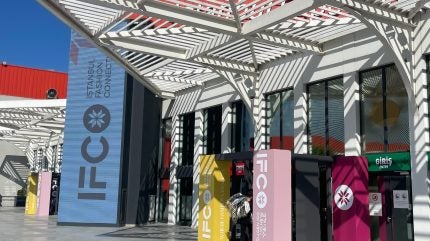
When the sixth edition of the Istanbul Fashion Connection (IFCO) opened its doors to more than 300 exhibitors earlier this month, Just Style took the opportunity to interact with local garment manufacturers, gaining deep insights into the apparel industry in Türkiye.
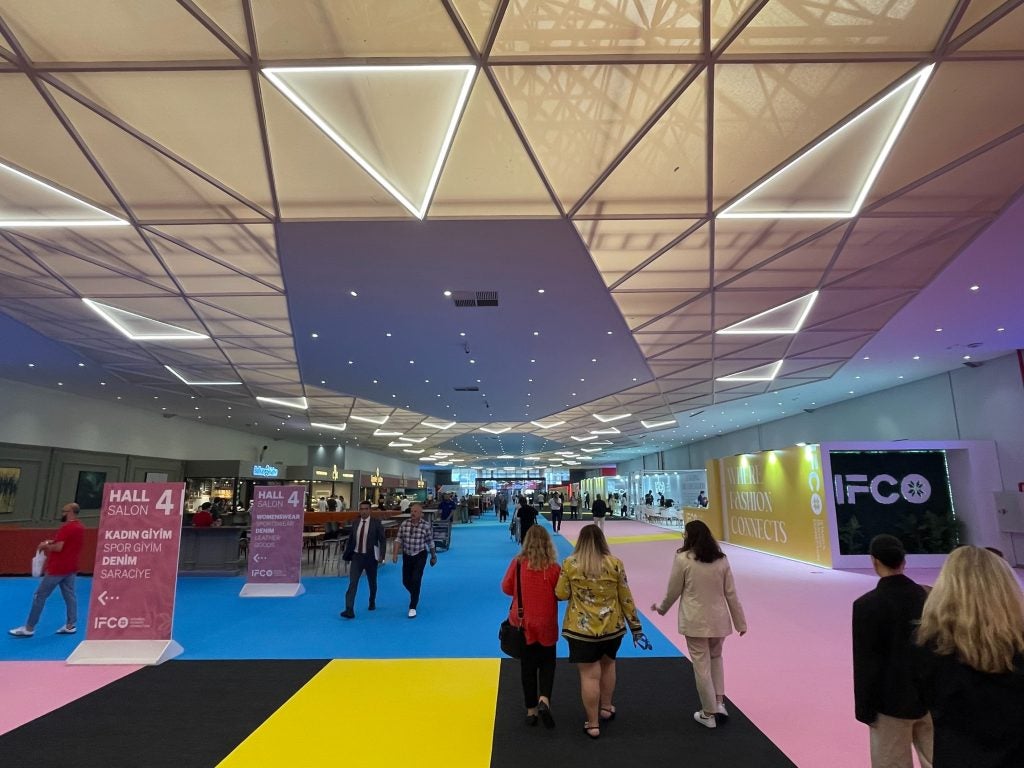
Expansion to US and European markets
Ceyhan Olgun, a sales expert at garment manufacturer Machinist, discussed his brand’s expansion since its inception in 2013. Most Turkish retailers, like Olgun, have a well-established customer base and sell to brands or markets directly in Middle Eastern countries.
Machinist produces 80% of its garments for its own brand and 20% for private labels. It aims to position its brand for the upper-middle class, with a license agreement already in Saudi Arabia and an established market in other Middle Eastern countries.
Olgun shared that beyond these markets, it has recently started selling in the US and the demand is good. The group is shortly due to travel to the US for the Vegas trade show.
As for ambitions to expand to the European market, Olgun says that’s on the cards for next year.
Garment maker Intersivin based in Izmir, Türkiye produces for both local and international markets, with 80% retail and 20% private label. It exports to Europe, Australia, Africa, and The Middle East. The GCC (Gulf Cooperation Council) market, however, is the largest.
Sahinez Zahariou, a representative from Intersivin, believes the brand can be “very strong” in the European market as well because of the quality and competitive pricing: “We want all of Europe but of course, let’s be logical here. We want the UK market.”
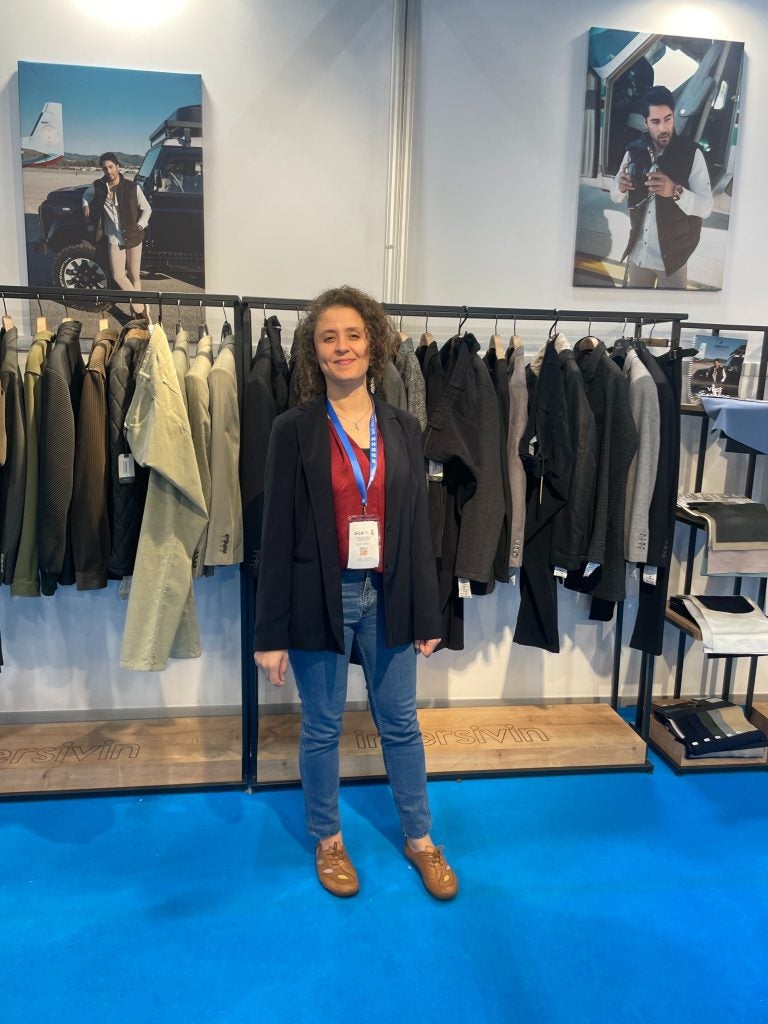
When asked what was so enticing about the UK market in particular, Zahariou explained that the purchasing capacity and volume is big in the UK which draws Turkish manufacturers. Plus, the cultural understanding of what the British prefer and like, thanks to popular sitcoms and movies.
Focus on quality
The focus on quality was a resounding theme at the sixth Istanbul Fashion Connection (IFCO) trade show this August. Every manufacturer was sure of the product’s quality, allowing them to demand a higher pricepoint.
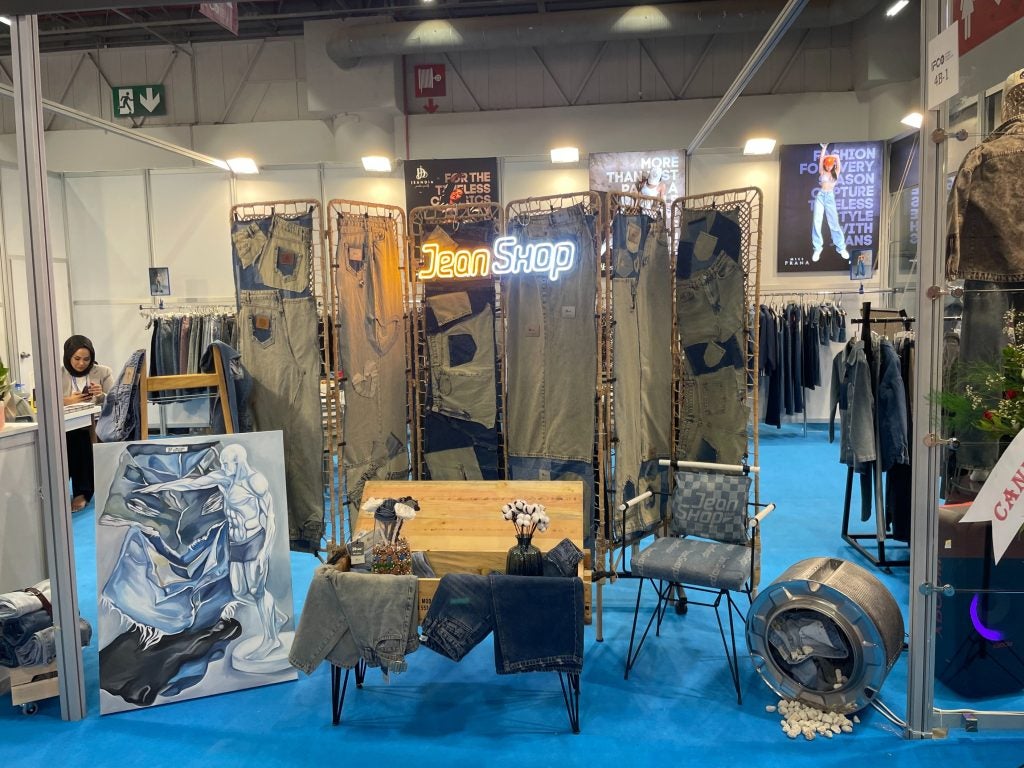
Olgun says with the fabrics locally supplied and trusted to be specialised and exclusive, Turkish garment suppliers have the edge over competitor supplier countries.
He said: “We had planned to be in Pure London last July but with this show (IFCO) and Vegas 10 days later, we decided to postpone until the next edition. When we applied for that show, they saw the opportunity and really wanted us there which was a great feeling.”
Bolstering in-house brands, designers
One of the major reasons Machinist is in favour of the ramping up of Turkish brands on the international market is to have the edge over producer countries like Morocco and Bangladesh, which may produce at a cheaper point but can’t necessarily deliver the value-added element.
“In Bangladesh, people are selling a basic t-shirt for like $1.5. That’s not our aim. We don’t want to be that producer country anymore. We should create some brands just like the UK and Italy. We need to be at that stage.”
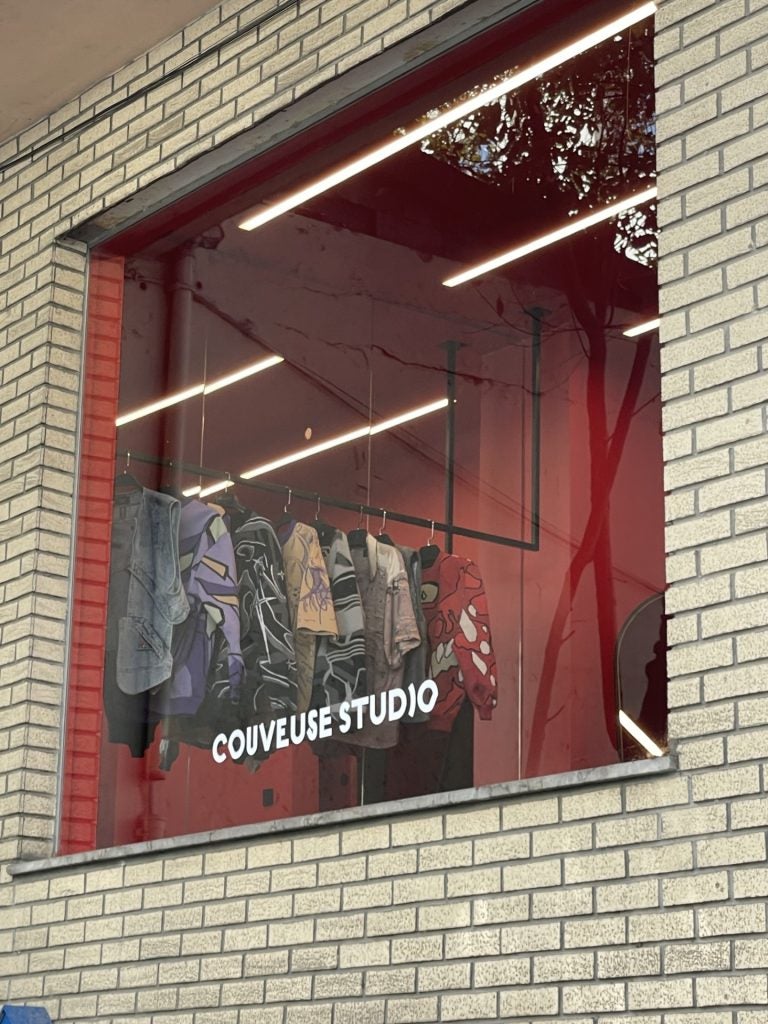
It’s Basic, a fast fashion brand and Türkiye-based manufacturer, said it is strengthening its brand by competing with global ultra-fashion giants like Shein. A representative from the company said all processes are taken care of in-house, from designing, cutting, stitching and finishing, everything.
Additionally, to highlight its versatility, the manufacturer releases a “capsule collection” of 20 pieces every week, roughly amounting to 1000 pieces per year: “We have our own designers, and then advisors that visit the company twice a week to have meetings, see the developments and talk about the new ideas.”
Audit fatigue
Hasan Demir, foreign trade manager and board member of Vinci, a denim brand and manufacturer, shed light on the critical issue of audit fatigue and urged the need for a globally standardised set of rules.
Demir noted that most of the budget is now spent on excruciating audits leading to different certifications for the same purpose by different brands. He expressed sheer frustration at the lack of a universal certification, which translates to hours, money and resources.
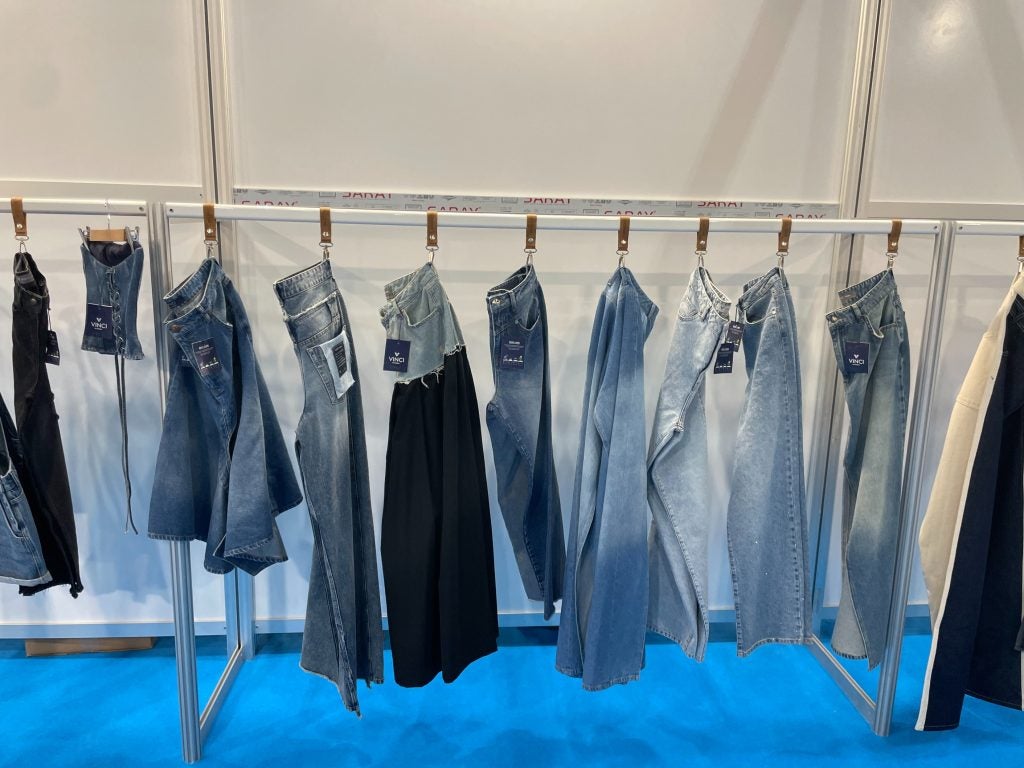
Fighting increasing costs, inflation
Beyond this, Türkiye continues to battle high inflation and rising costs impacting the cost of manufacturing.
Zahariou said: “Of course, there is inflation globally, so these things are challenging for us as manufacturers when we are dealing in the local market. Also, when we buy some raw materials we are affected because of local challenges and global challenges.”
However, Zahariou is hopeful for the future, exclaiming that the company is working towards fighting these local sectorial challenges. One way of dealing with higher costs is producing in a different country. She explained as an example that the Turkish and Egyptian governments share strong ties and hence, they receive a lot of collaboration requests by Egyptian manufacturers to produce in Egypt which is comparatively cheaper.
“To manufacture in the Egyptian market is cheaper but we want to make sure that we maintain the same quality. Because in Türkiye, our quality and our workers, they really care. So we want to make sure the same can be achieved,” stated Zahariou.
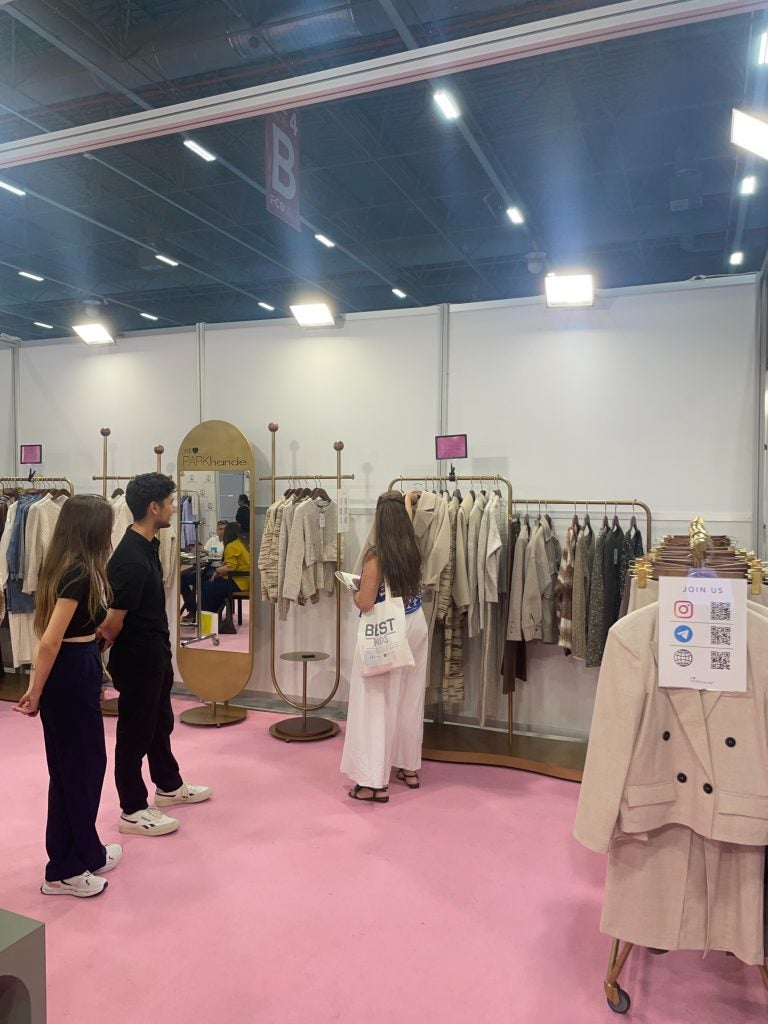
Machinist’s sales expert Olgun adds: “There’s huge inflation, and also the labour prices are going up and up every day. Even the minimum wage is not enough for anybody.”
He said that even though they buy fabrics before the season, the prices change in a matter of months. If they need the same material again, it is a struggle because of the cost.
But Zahariou shares a more optimistic outlook, noting that the loss of one export market on the back of increased costs, allows entry into other markets that value quality and unique products.
For her, compromising on quality is simply a no-go. “The quality will always bring us the right partners, right clients,” she assures.
The impact of geopolitics, rookies and AI
After interacting with several manufacturers Just Style developed an understanding of how political conflicts in regions like Russia, Ukraine, Israel and Gaza have steered demand to Türkiye. Vinci, a fast-fashion manufacturer, said some of its biggest customers came from Russia and Eastern Europe, however, figuring out payment channels due to the ongoing Russia-Ukraine war has been a major issue.
More garment manufacturers are popping up across the country, with many presenting at IFCO for the first time in a bid to showcase their offering to buyers. Even the newbies were insistent on not cutting costs and compromising on quality, despite market challenges.
Turkish manufacturers are also keen on growing their e-commerce customer base. Fatih, a visual merchandiser from the brand Perry, pointed out that due to inflation and increased costs, customer budgets have tightened which makes it difficult to open brick-and-mortar stores.
He also urged the government to explore opportunities in supporting brands to set up social media shopping platforms on Instagram and TikTok shops which are increasingly gaining traction in other parts of the world.
Meanwhile, Suleyman, a representative from Enfisemma and Nefise brands, shared his excitement about Artificial Intelligence (AI) in the fashion sector. He said: “I am inquiring about studies on AI. It has progressed quite a bit. We have also seen a few demos on this subject but it has not been put into use yet. Maybe in the coming days, I will use artificial intelligence more actively. Maybe it will be more useful for us to produce the right things and to follow the right fashion more accurately. We do not know how far AI will take us, I mean we do not know the future right now but that is where it is going.”



